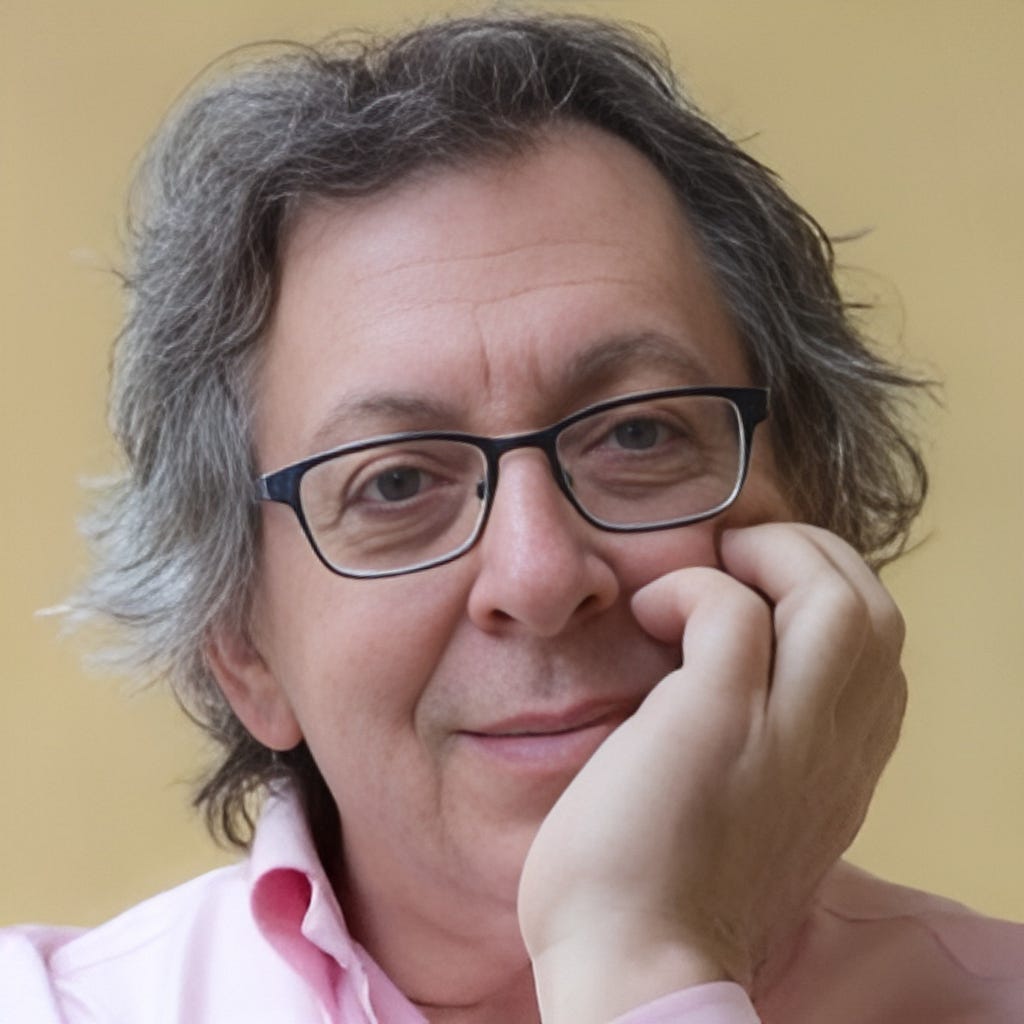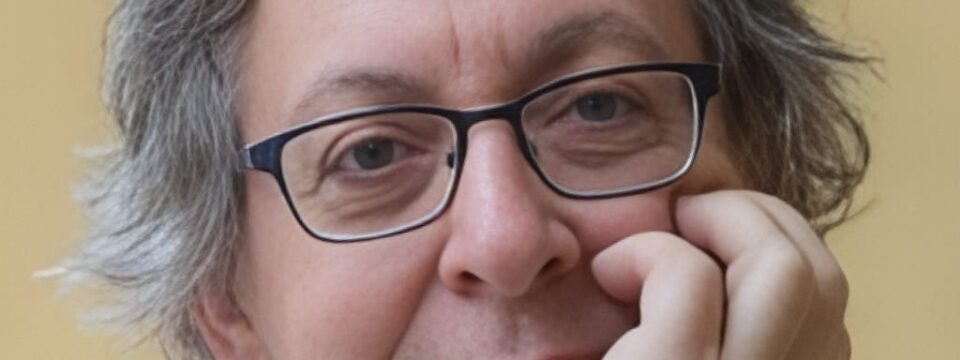
My personal belief system is that “thoughts and prayers” don’t work. But it only takes a single tear to change the world. A house is built one brick at a time, and so is change. I don’t have two more ideas.
As a part of our series about stars who are making an important social impact, I had the pleasure of interviewing Steve Lebetkin.
Steve Lebetkin is the Composer of Fallen Angels — a three-movement choral symphony that hones in on three of the primary stages of grief of those that have lost children, family, and friends due to senseless gun violence. Poignant and compelling, Fallen Angels is also an incredibly important American musical work.
Thank you so much for joining us on this interview series. Can you share with us the backstory that led you to this career path?
At the age of 13, I began writing classical music without prompting. While other young adolescents were out socializing and boys were discovering girls, I traveled nearly every Saturday from Queens, NY via 3 trains to arrive at the Lincoln Center Library for the Performing Arts. I walked in at 9am and began a full day of listening to vinyl and learning to study orchestral scores. At noon I would leave for lunch at the famous fountain — a hot dog and coke, and then returned to continue the afternoon. At 5 I would leave for dinner, and purchase student tickets to concerts in the area, traveling back the same route to get home at 11PM. My parents never had to worry about any mischief I would be up to.
It has been said that our mistakes can be our greatest teachers. Can you share a story about the funniest mistake you made when you were first starting? Can you tell us what lesson you learned from that?
I returned from summer vacation for the fall semester at Queens College. During the first theory class, the great Professor Gabriel Fontrier asked what I had done over the summer. I proudly replied that I had composed my first piano sonata. All of the students gathered around the piano while I played through the difficult and complex score. Professor Fontrier let his cigarette burn all the way down, then flicked it at the end. I sheepishly asked him what he thought of it. He replied “I think you should burn it. There are far too many notes! Go home and come back with a simple art song next week for soprano and piano”
Well, I didn’t burn it, but came across it a few years ago in my files, and understood immediately what he meant. However, the second movement had a lovely captivating 8–10 bar theme. I seized upon that and work on it for 9 months. It became the basis of Cycle of the Earth, an environmental ballet- symphony. He was right. Every note in the symphony counts for something.
What would you advise a young person who wants to emulate your success?
Learn your craft very carefully. The art of composition and related technique is not memorialized in any textbook. Textbooks on composition technique are filled with theory lessons, and have nothing to do with the core subject matter. Learn from someone who knows what this is and can pass the torch to you, if you can handle it.
Is there a person that made a profound impact on your life? Can you share a story?
Gabriel (“Gabby”) Fontrier was America’s Nadia Boulanger. Boulanger taught hundreds of American composers, beginning with Aaron Copland. Gabby did the same in the second half of the 20th century. He taught us about sound, the manner in which sound is digested by the human brain, the deeper meanings of the overtone series, and how to move people through thoughtful composition techniques. I have hundreds of examples.
How are you using your success to bring goodness to the world? Can you share with us the meaningful or exciting causes you’re working on right now?
Over the last several years I have developed an interest in social justice causes the world is interested in, and created stories that surround these causes set to music. Currently Fallen Angels Choral Symphony will have its premiere in April 2024 at Florida State University, Tallahassee. This work in three movements focuses on three stages of grief caused by senseless gun violence. Other social justice pieces include Cycle of the Earth — Ballet Symphony, which is an environmental ballet. Also Live Oak With Moss, which is a setting of 6 secret poems by Walt Whitman on his homoerotic life, scored for Baritone voice and chamber string orchestra. A song cycle for tenor and piano called Songs for the Evolved Man focuses on collected poems that celebrate men who have evolved in their view of the world. Late September is a song cycle for Soprano and Piano that embraces female love on poems by Amy Lowell. And lastly, I am working on Spoon River, an Opera/Oratorio on prose poems by Edgar Lee Masters that focuses on structural changes in American society.
Can you share with us a story behind why you chose to take up this particular cause?
Fallen Angels Choral Symphony was originally titled Parkland Choral Symphony. I composed it because I was so moved by what happened there. Unfortunately, the problem with gun violence only grew worse, so I re-branded the piece to honor all of our Fallen Angels.
Can you share with us a story about a person who was impacted by your cause?
I don’t have a specific story about an individual impacted by any of the causes I subscribe to, but I can say that the emotional reaction to all of my work, particularly the social justice pieces is quite moving wherever I go.
Are there three things or are there things that individuals, society, or the government can do to support you in this effort?
My personal belief system is that “thoughts and prayers” don’t work. But it only takes a single tear to change the world. A house is built one brick at a time, and so is change. I don’t have two more ideas.
Why do you think music in particular has the power to create social change and create a positive impact on humanity?
Music is love. Music stimulates the brain in the same way as we feel love for others. The human experience is that wonderful feeling of love when great music comes into our brains. It enables us to feel connection with others that also feel love through the joy of listening and knowing that others feel the same way. Music brings us to a better place.
What are your “5 things I wish someone told me when I first started”?
- Follow your instinct. 2.
- Don’t lie to yourself about your capabilities or talents.
- Listen as much as you can.
- Don’t jump to any conclusions.
- Study neuroscience.
You’re a person of enormous influence. If you could start a movement that would bring the most amount of good to the most amount of people, what would that be? You never know what your idea can trigger.
It would be to gather the wisest musicians in the world for a think tank about what makes great music. Then grow it.
We are blessed that some very prominent names in Business, VC funding, Sports, and Entertainment read this column. Is there a person in the world, or in the US with whom you would love to have a private breakfast or lunch, and why? He or she might just see this if we tag them.
Gabriela Montero
Thank you so much for these amazing insights. This was so inspiring, and we wish you continued success!
Music Stars Making a Social Impact: Why & How Steve Lebetkin Is Helping To Change Our World was originally published in Authority Magazine on Medium, where people are continuing the conversation by highlighting and responding to this story.
